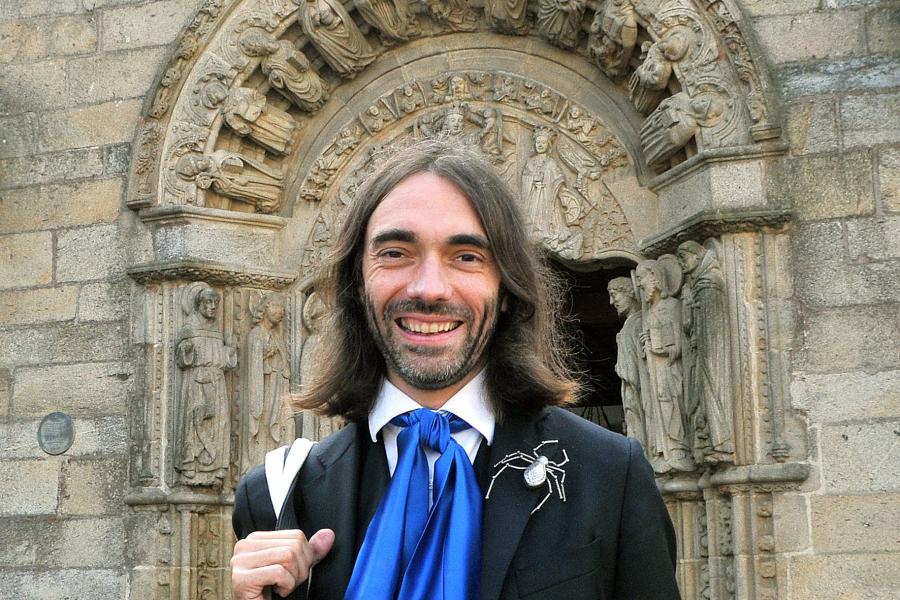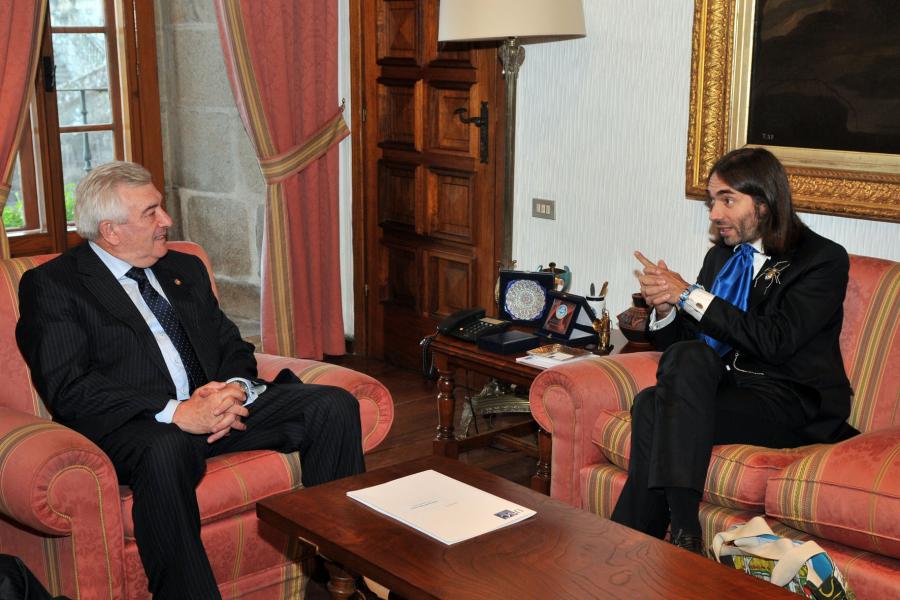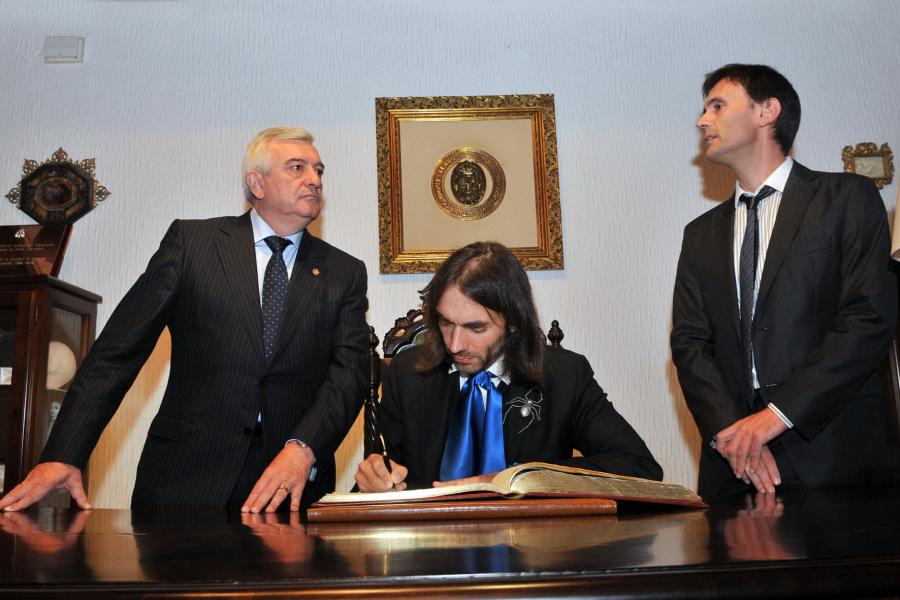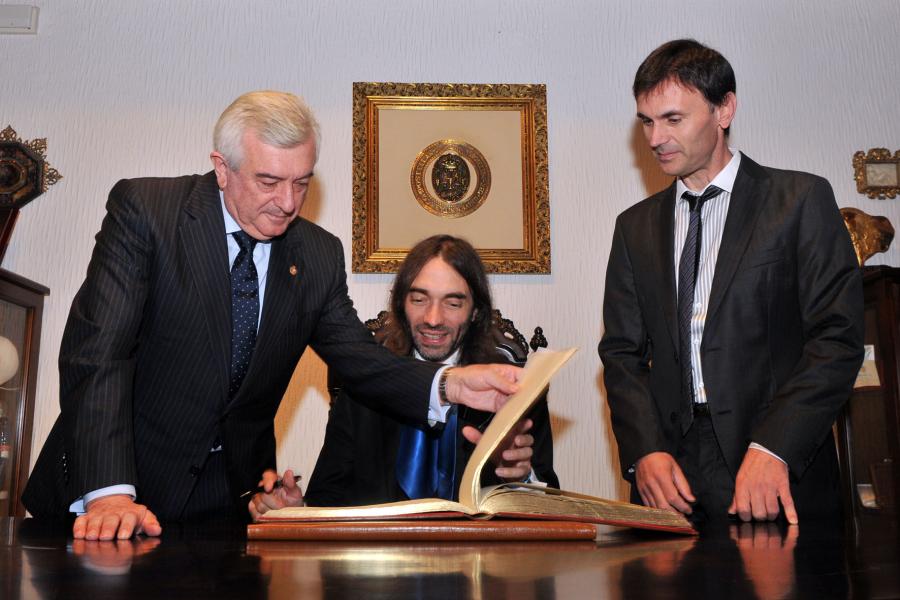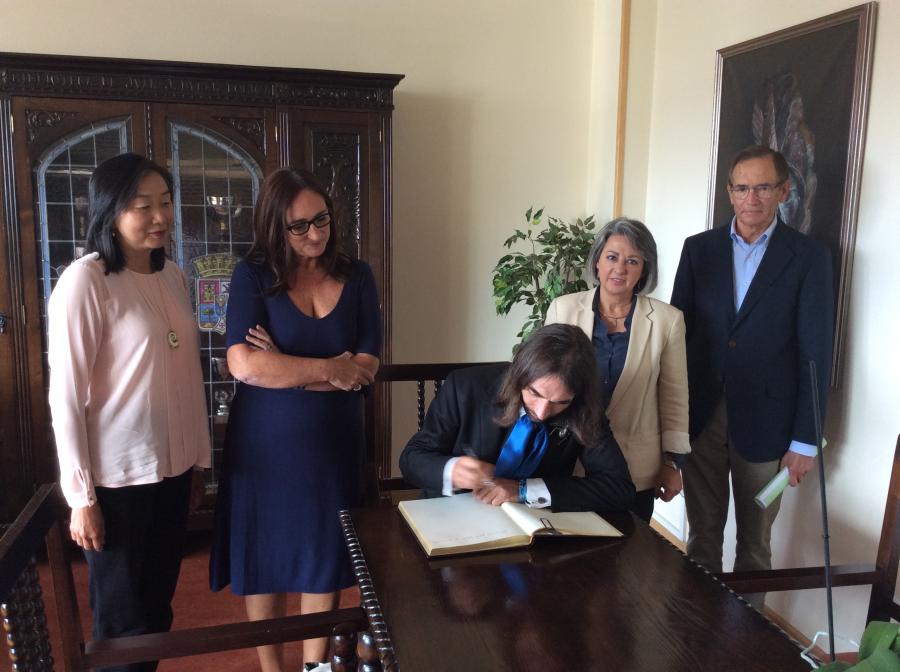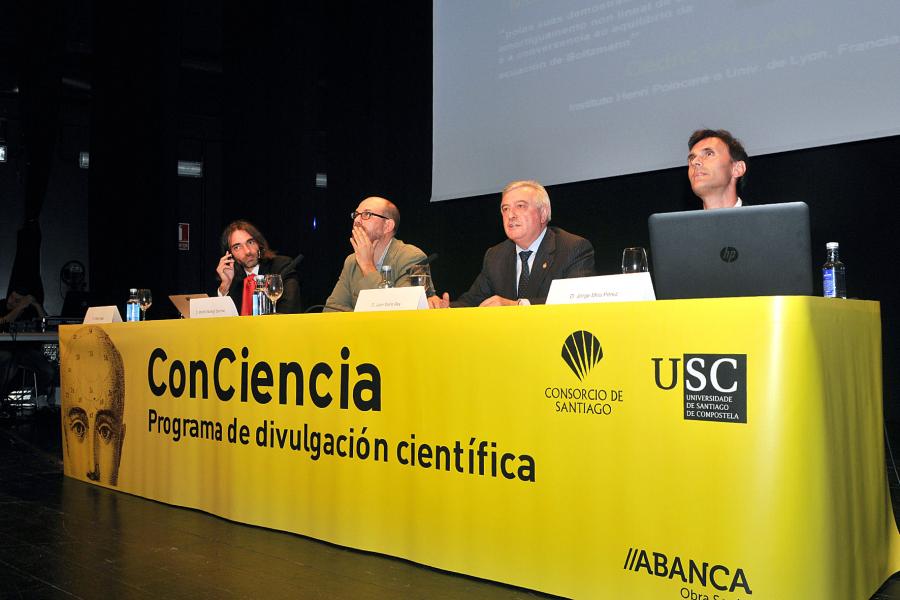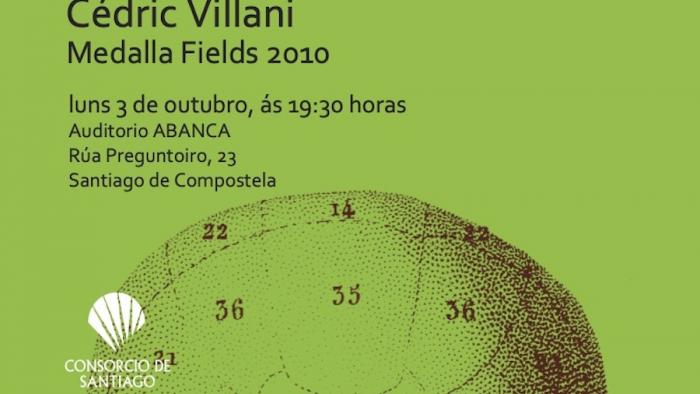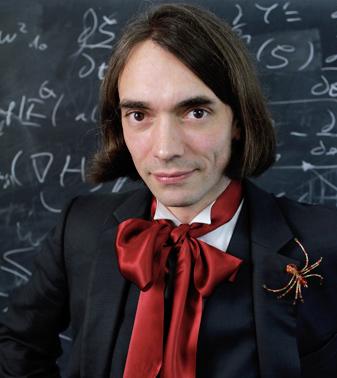
Fields Medal “for his proofs of nonlinear Landau damping and convergence to equilibrium for the Boltzmann equation".
Cédric Villani is a French mathematician born on 5th October 1973 in a family of university professors and artists. His parents are professors of literature, an uncle is professor of mathematics and one of his brothers is a composer for music in films.
He graduated from high school at 16 and started his preparation for university (the so-called French Grandes-Écoles) in the Louis-le-Grand institute. In 1992, he is admitted (in the 4th position) to the École Normale Supérieure de Paris. He specialises in mathematics and in 1994 he begins his PhD under the supervision of the Field Medalist Pierre-Louis Lions (son of Jacques-Louis Lions, a Doctor Honoris Causa by the Universidade de Santiago de Compostela). In 1998 he defends his PhD thesis entitled “Contribution à l’étude mathématique des gaz et des plasmas” in which he studies the flush gas collisions and increase in entropy following Boltzmann's theory. In 2000 he becomes a Professor at the École Normale Supérieure de Lyon. Following his appointment as Director of the famous Institut Henri Poincaré in 2009 he obtains the Fields Medal in 2010 and is appointed member of the Académie des Sciences de Paris in 2013.
Cédric Villani works in the partial differential equations that appear in statistical physics; in particular in the Boltzmann equation which describes the statistical behaviour of a thermodynamic system out of balance. He also works on the theory of optimal transportation, a theory that appears regarding a problem from the XVIII century by the French mathematician Monge.
It is also worth mentioning, by its originality, his application of the differential geometry methods to the above subjects. In particular the relation between Ricci curvature and optimal transportation and entropy.
Cédric Villani is a scientist committed to society. He delivers scientific talks to a wide variety of audiences around the world. He talks to the media, participates in documentaries about the impact of mathematics in today’s society, promotes film clubs where he debates with other scientists about science in films or the relationship between science and art. Recently he has written together with non-mathematician authors literary works of fiction and essays.
He has a lot of important awards. Besides the Fields Medal (the equivalent to the Nobel Prize in mathematics), he has obtained the Louis Armand award from the Académie des Sciences de Paris in 2001, the award of the European Mathematical Society in 2008 or the Fermat and Henri Poincaré distinctions in 2009.
